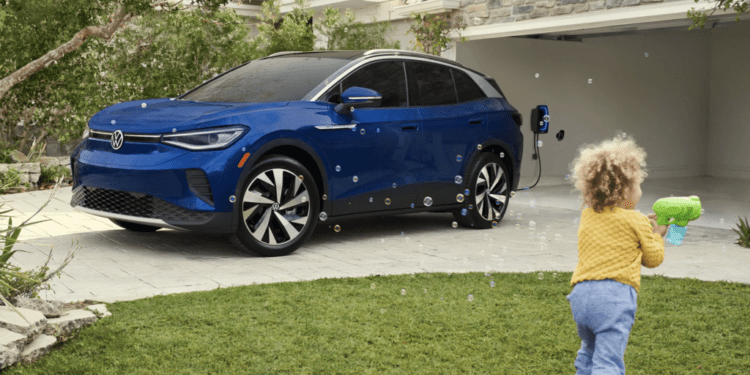Electric vehicles (EVs) are quickly becoming a popular choice in the auto industry, with automakers investing billions of dollars into the technology. However, a recent poll shows that consumer interest may still have a ways to go to meet US climate goals. Nearly half of US adults are considering EVs for their next purchase, but many are still concerned about high sticker prices and a lack of charging stations.
To better understand consumer sentiment towards EVs, the Associated Press-NORC Center for Public Affairs Research and the University of Chicago’s Energy Policy Institute conducted a joint poll between January 31 and February 15. The poll included 5,408 US adult respondents and revealed that only 19 percent of them said they were “very” or “extremely” likely to purchase an EV for their next vehicle, while around 22 percent said that they were “somewhat likely” to. The majority, 47%, said they were unlikely to buy electric.
The primary reason for this reluctance was the high sticker price of EVs, with 60% of respondents citing it as a major factor. Additionally, 75% of respondents said that the lack of charging infrastructure was a major reason for not buying an EV. Around 67% of those who said they were unlikely to buy an EV also said they preferred gas vehicles.
Robert Piascik, 65, who lives in a suburb of Columbus, Ohio, is one such respondent. “I’m an internal combustion engine kind of guy,” Piascik said. “I can’t see myself spending a premium to buy something that I don’t like as much as the lower-priced option.” He also noted the lack of infrastructure as a major issue.
Despite this, many people are still open to the idea of purchasing an EV in the future. To make this happen, automakers must focus on making EVs more affordable and improving their technology. Additionally, governments must invest in charging infrastructure to make EVs more accessible and attractive to consumers.
FAQ
Q1. How electric car batteries work?
A1. Electric car batteries are typically lithium-ion batteries that store energy and power the motor. They are recharged by plugging the car into an electric outlet or charging station.
Q2. What electric car has the longest range?
A2. The Tesla Model S has the longest range of any electric car currently on the market, with a range of up to 370 miles on a single charge.
Q3. How electric car batteries are recycled?
A3. Electric car batteries are recycled by breaking them down into their component parts and then separating out the metals, plastics, and other materials for reuse. The metals are melted down and reused in new products, while the plastics and other materials are recycled into new products.







